All products featured are independently chosen by us. However, SoundGuys may receive a commission on orders placed through its retail links. See our ethics statement.
Best transparency mode earbuds
November 7, 2024







Transparency mode, a feature originally popularized by Apple but known by various names such as ambient mode or “hear-through,” is a convenient feature in earbuds that allows users to hear their surroundings without removing their earbuds. This function caters to those who want to stay alert to their environment, whether for safety reasons, like being aware of approaching vehicles, or for practicality, such as needing to communicate with others without removing your earphones.
Transparency mode effectively balances the desire for an immersive audio experience with the ability to remain connected to the world around you. While many earbuds offer this capability, the effectiveness and quality of the transparency mode can vary significantly. To help you find the best, we’ve rounded up our top picks for earbuds with transparency mode.
Editor’s note: this list was published on November 7, 2024, to add a section on the Sony LinkBuds Open.
Best transparency mode earbuds for most people: Apple AirPods Pro (2nd Gen)
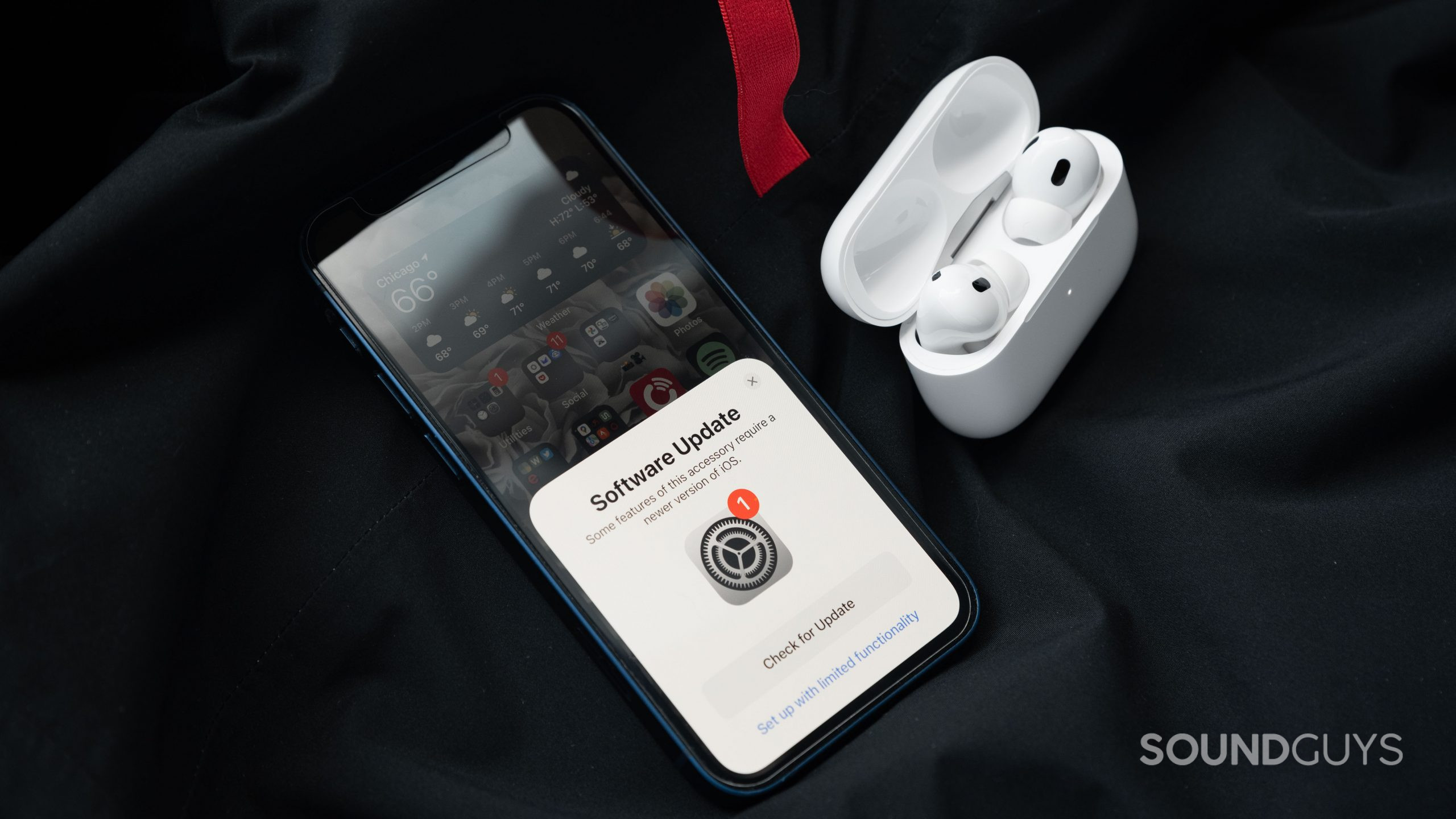
The Apple AirPods Pro (2nd Gen) is a staple in the iOS ecosystem, particularly in the realms of active noise canceling (ANC), battery life, and, importantly for this summary, the Adaptive Transparency mode. The H2 chip powers these enhancements, ensuring that users enjoy a more seamless and immersive listening experience.
The Adaptive Transparency mode balances the need for environmental awareness with the desire to mitigate the harshness of sudden loud noises. In our review, we found it effective in allowing ambient sound to pass through while dampening potentially jarring noises, providing a comfortable and safe listening experience without completely isolating the listener from their surroundings.
The U1 chip in the case, alongside an integrated speaker, enhances the Find My app functionality, letting you locate them with your iPhone if they get lost. However, The device’s reliance on Apple-exclusive features and the lack of an EQ customization option without third-party apps may deter some potential users. If you have an Android phone, look to the other options on this list.

The Sony WF-1000XM5 adapts to your lifestyle

The Sony WF-1000XM5 earbuds perhaps represent the pinnacle of user control and customization. Through Sony’s Headphones Connect app, listeners can personalize their soundscapes across any device. They have Adaptive Sound Control, which intelligently adjusts ambient sound settings and ANC levels based on the user’s activities and surroundings. You can also fine-tune these adjustments for specific scenarios, such as when you are stationary, walking, running, or commuting.
Sony also offers a six-band equalizer in the app to tweak your audio preferences and spatial audio personalization regardless of whether you are using an Android or iSO device. Other features, such as Speak-to-Chat, multipoint connectivity and LDAC support, and head gesture recognition for calls, further add to its user-centric design. If you want some of the best noise canceling earbuds currently on the market, look no further.


The Bose QuietComfort Ultra brings high-end features
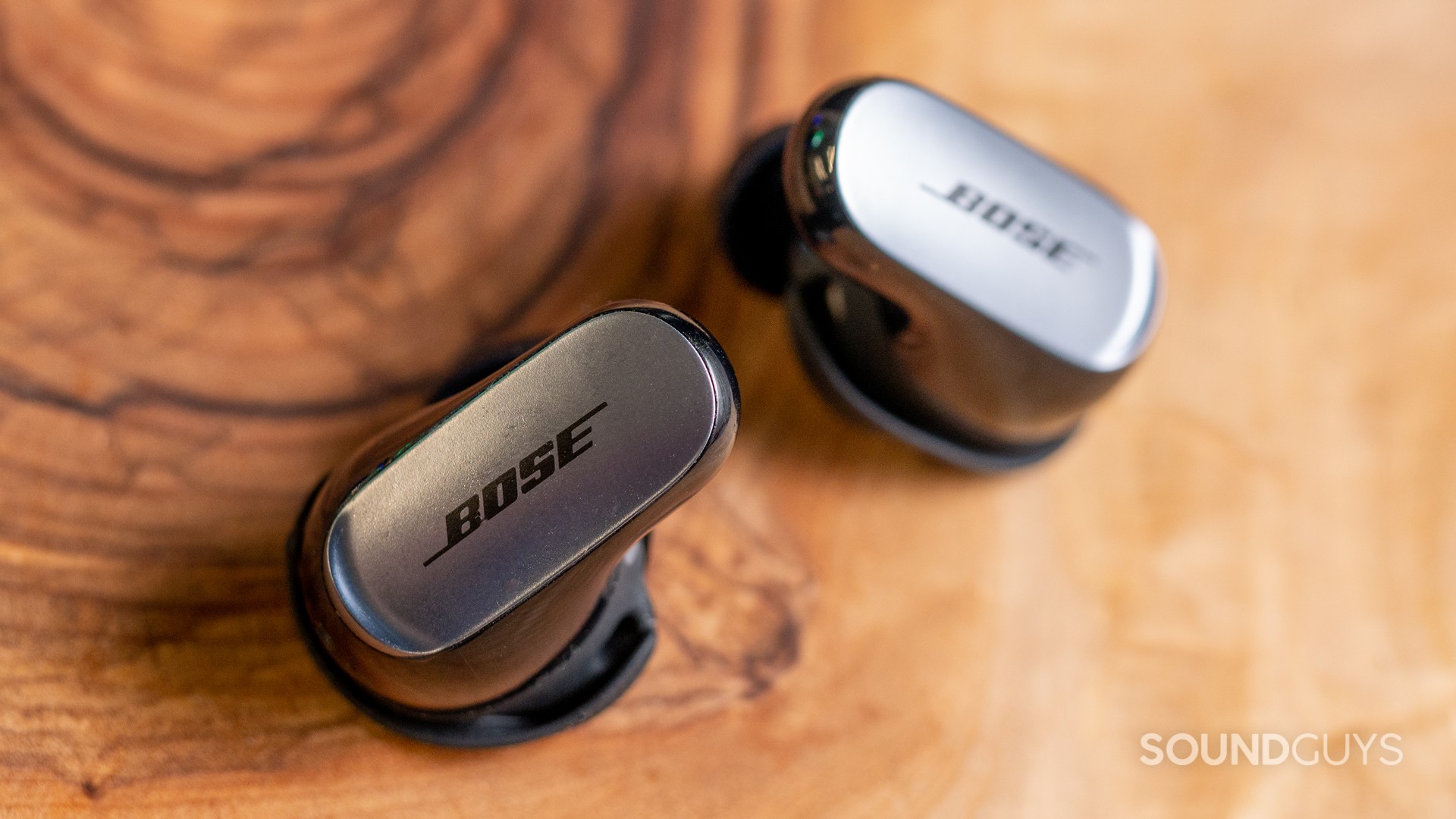
The Bose QuietComfort Ultra Earbuds are a high-end option for those prioritizing active noise cancelation (ANC), comfort, and fit, though their sound profile and price point may not appeal to everyone. With a $300 price tag, these earbuds are positioned as a premium choice, particularly for Android users, thanks to their Snapdragon Sound support, which offers high-resolution audio through aptX Lossless and low-latency listening experiences.
One of the flagship features of the QuietComfort Ultra earbuds is Bose’s Immersive Audio, which joins two features: Quiet mode, which activates the ANC, and Aware mode, which serves as their version of transparency mode. The latter allows ambient sounds to clearly filter through, and it’s quick and easy to toggle between the two. You can also enable Still mode, which allows for side-to-side head tracking while the music stays at a fixed position in front of you, or Motion mode, which reduces head tracking and keeps the audio by your ears no matter which direction you turn.

The Galaxy Buds 2 Pro is best for Samsung users
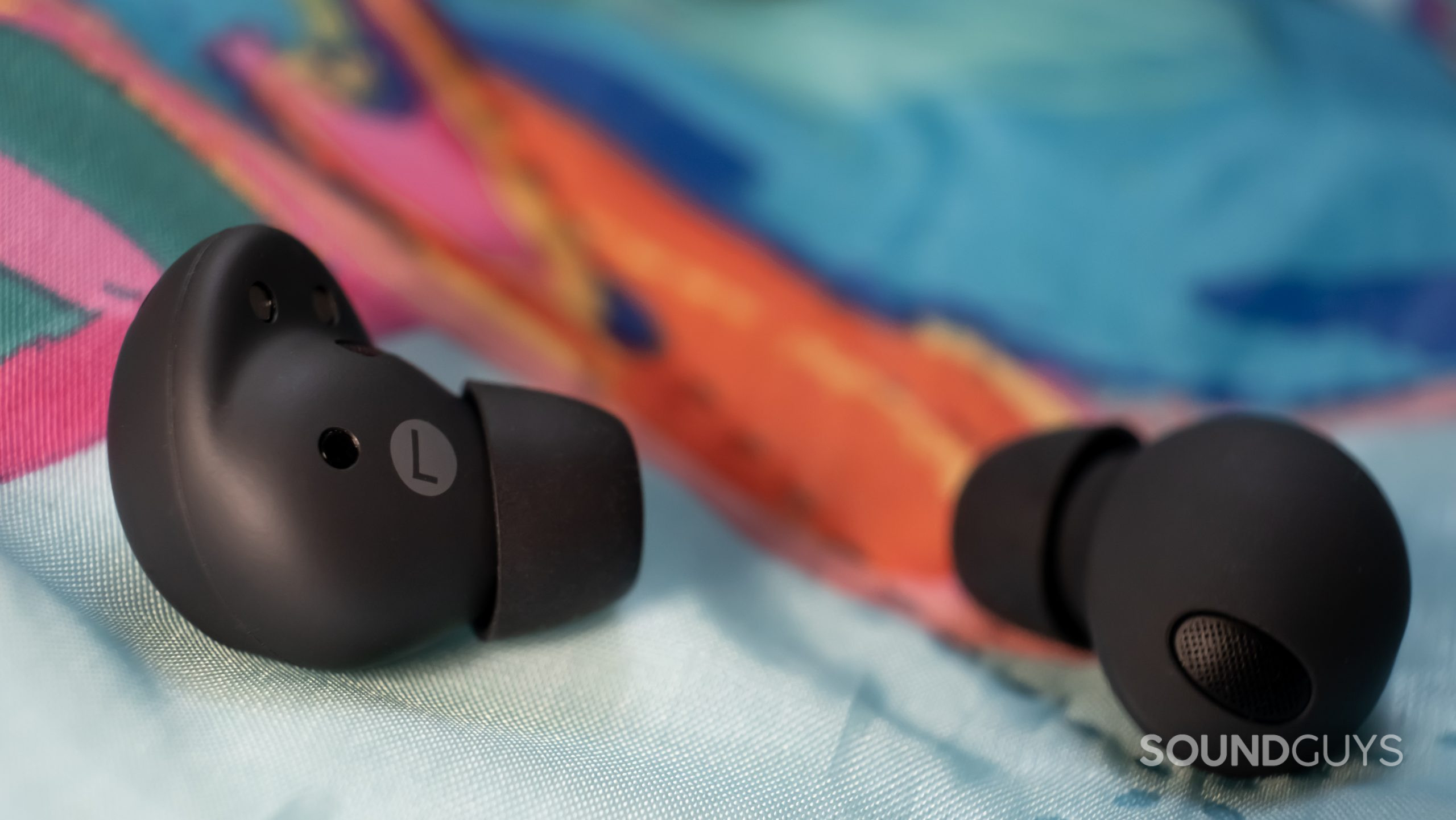
For Samsung device owners, the Galaxy Buds 2 Pro is the top choice, offering seamless ecosystem integration, robust ANC, especially effective at low frequencies, and a comfortable fit. Of note for this list is their Intelligent Conversation Mode, which automatically transitions users to ambient sound upon detecting their voice. This feature, akin to Sony’s speak-to-chat functionality, enhances usability by allowing for natural conversations without needing to manually switch modes or remove the earbuds.
The earbuds offer excellent sound quality, largely when used with Samsung’s proprietary codec. Still, this advantage narrows for non-Samsung Android users due to fewer codec options and lack of features like 360 Audio and Wireless PowerShare. They also boast an IPX7 water resistance rating, making them suitable for wet conditions, and have adequate battery life.

The Creative Aurvana 2 is the best bang for your buck

The Creative Aurvana Ace 2 earbuds are a great choice for those seeking high-quality sound without the premium price tag. One of the standout features of the Aurvana Ace 2 is its dual-driver system featuring xMEMS speakers, which deliver sound quality that rivals that of more expensive counterparts.
Of course, they feature an Ambient Mode to stay alert to external noises. You can switch between active noise canceling and ambient mode through both the Creative app and the earbuds’ touch controls, which is pretty convenient. The app also has a customizable EQ on board. Combined with a good seal from the selection of ear tips, these are a great value proposition for any listener.


Should you get the Sony Linkbuds?

Here’s a novel approach when it comes to transparency mode. The Sony LinkBuds Open have a distinctive donut-shaped design with a literal hole in the center of each bud to facilitate natural sound passthrough. This design choice is ideal for those who prioritize situational awareness. However, this unoccluded design comes with its trade-offs, most notably in the bass department, where the LinkBuds struggle to deliver the depth and richness found in more traditional sealed earbuds. The very feature that makes them unique—allowing ambient noise to pass through—also means that users may find the audio experience lacking, particularly in noisy environments where bass lines and lower frequencies will be overshadowed. Ultimately, it depends on what your priorities are.

Leave your ears completely open with bone conduction headphones
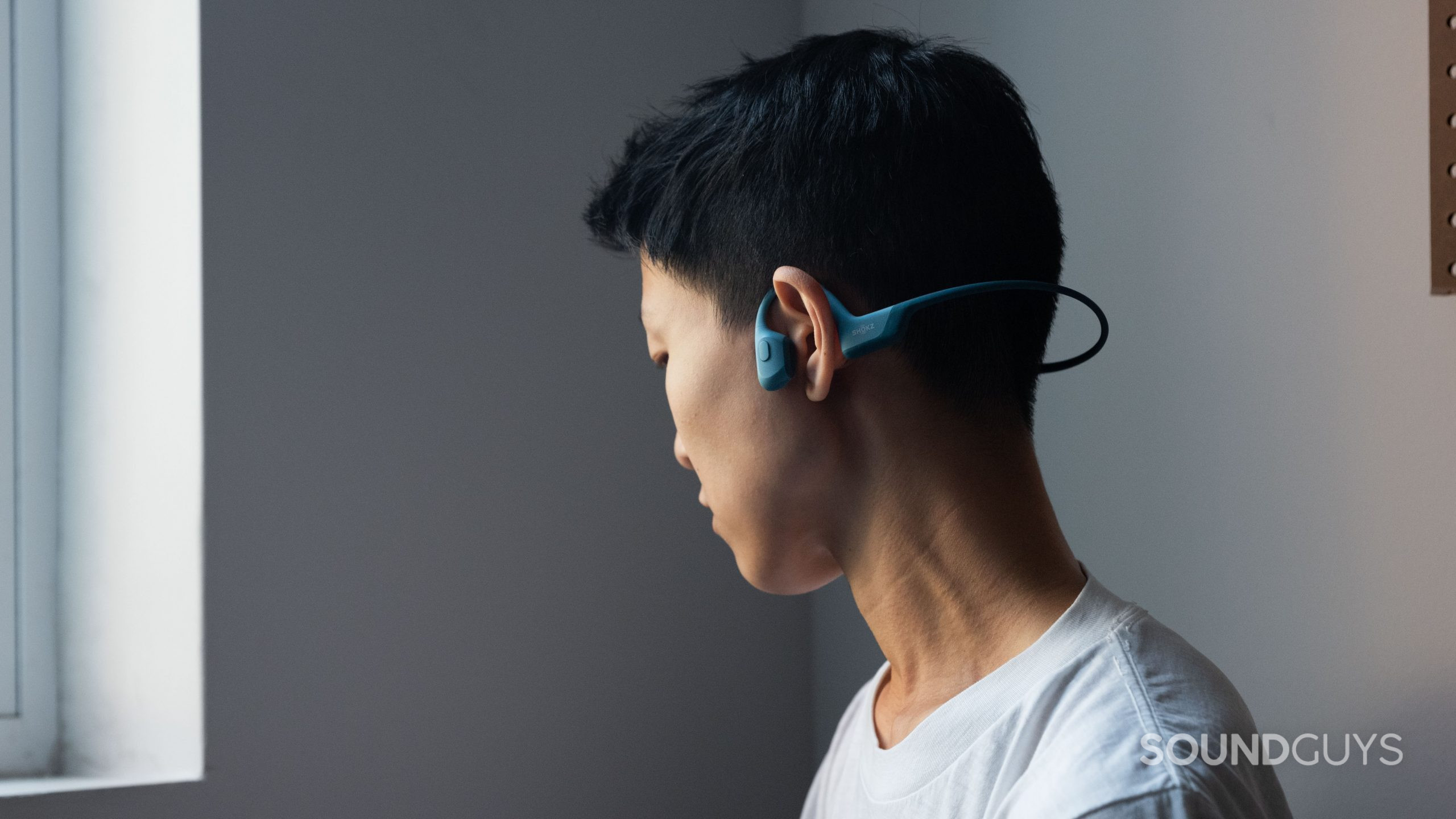
If you want to remain as aware of your surroundings as possible while listening to music or podcasts, consider bone conduction headphones. Unlike traditional headphones and earbuds, the eardrum doesn’t vibrate to pass the information along to the cochlea. Instead, the vibrations from the bone conduction bee-lines for the cochlea. Since these don’t seal around or even touch the ear canal, they allow you to hear other pedestrians, passing cars, and other potential hazards. On the other side of the same coin, there is no isolation whatsoever, which means that the audio quality is severely degraded. Again, it all depends on your priorities, but the difference here is more extreme than with the aforementioned Sony LinkBuds.
The best transparency mode earbuds: Notable mentions

- Anker Soundcore Liberty 4 NC ($99.99 at Amazon): With an IPX4 rating, long battery life, good ANC, and plenty of Ambient modes and EQ presets, these are worth the money.
- Edifier NeoBuds Pro 2 ($129.99 at Amazon): At $129, the Edifier NeoBuds Pro 2 are a steal. They’re not perfect, but the only group of people we don’t recommend these to are frequent international travelers. For everyone else, this is a good buy with the option to toggle between plenty of different passthrough modes.
- Jabra Elite 8 Active ($199 at Amazon): If you need highly durable earbuds, the Jabra Elite 8 Active deliver. They will stay in your ears, provided you can get a good fit. The sound is good, the noise canceling works well, and they have a HearThrough mode that can automatically switch for phone calls.
- Samsung Galaxy Buds 2 ($99 at Amazon): These have most of the features of the Galaxy Buds 2 Pro, including a pleasant environmental passthrough that doesn’t sound robotic, but cost less.
What you should know about transparency mode earbuds
While transparency mode—or ambient mode, as it’s variously known—has been popularized by Apple, it’s a feature now found in many earbuds across a variety of brands, each with its own take on the functionality.
Brand-Specific Implementations
Transparency mode is engineered differently across brands, affecting how natural external sounds seem and how well these sounds are integrated with your audio playback. For instance, some earbuds may use advanced algorithms to prioritize certain external frequencies, like voices or traffic noises, ensuring they’re clearly audible over background sounds. Others might offer more basic functionality, simply amplifying all external noise without much filtration.
Technical Enhancements
The effectiveness of transparency mode is significantly influenced by the earbuds’ microphone quality and the software algorithms used to process external sounds. High-quality microphones and sophisticated processing can result in a more natural and less distracting ambient sound experience. Additionally, some earbuds allow users to customize the level of ambient sound, providing a more tailored listening experience that can adjust to different environments or personal preferences.
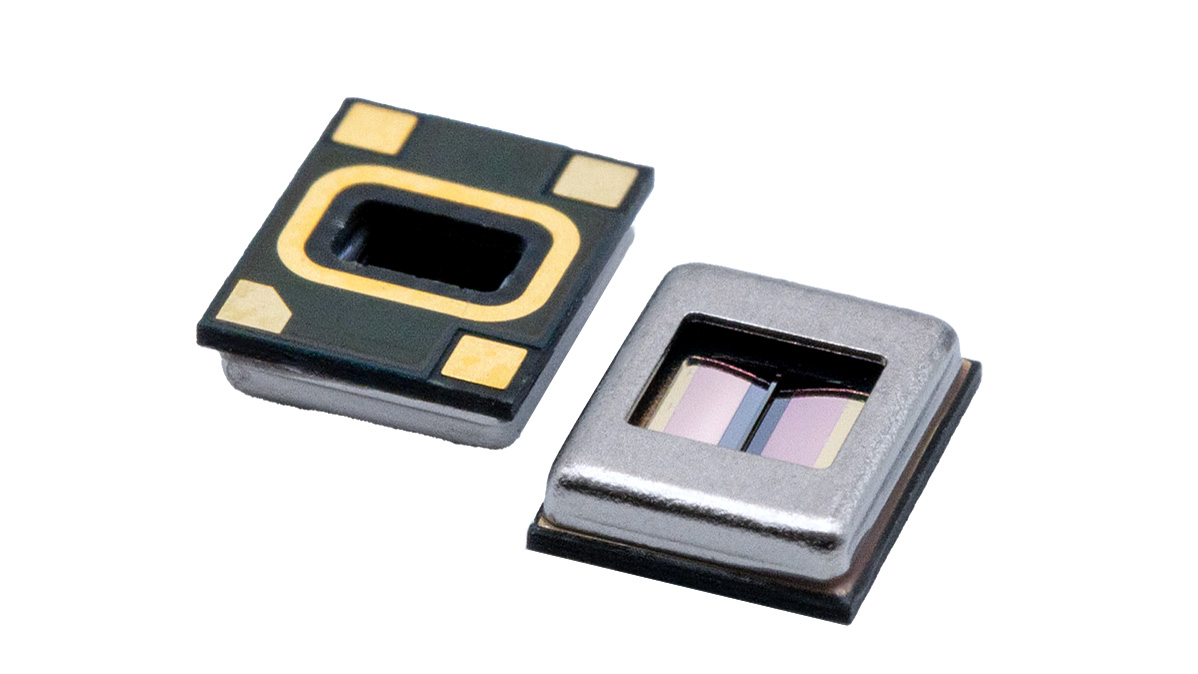
Recent advancements from companies like xMEMS’s Skyline DynamicVent are setting new standards in how users interact with their environment while enjoying their favorite audio content. The Skyline DynamicVent utilizes a vent-based passive isolation mechanism that dynamically adjusts to the surrounding noise levels, automatically closing to create a passive seal in noisy settings and opening in quieter environments to reduce the occlusion effect. Such technology showcases the potential for earbuds to provide a more natural listening experience without the need for electronic noise management systems. By combining this vent system with DSP noise detection, users can effortlessly transition from a fully immersive audio experience to being fully aware of their surroundings with a simple button press or automatically, thanks to intelligent environmental noise assessment. Expect to see these types of solutions in more earbuds in the future.
User Interface and Control
How users activate and adjust transparency mode varies by product. Some earbuds include intuitive touch controls or voice commands for easy toggling between modes, while others may require adjustments through a companion app. The ease of accessing and customizing this feature might affect your overall user experience.
The Role of Companion Apps
Many earbuds rely on companion apps to offer deeper customization options for transparency mode, from adjusting the mix of ambient sound to setting scenarios where transparency mode automatically activates. These apps can enhance transparency mode’s functionality, making it a versatile tool that adapts to your needs.
How we test transparency mode in earbuds
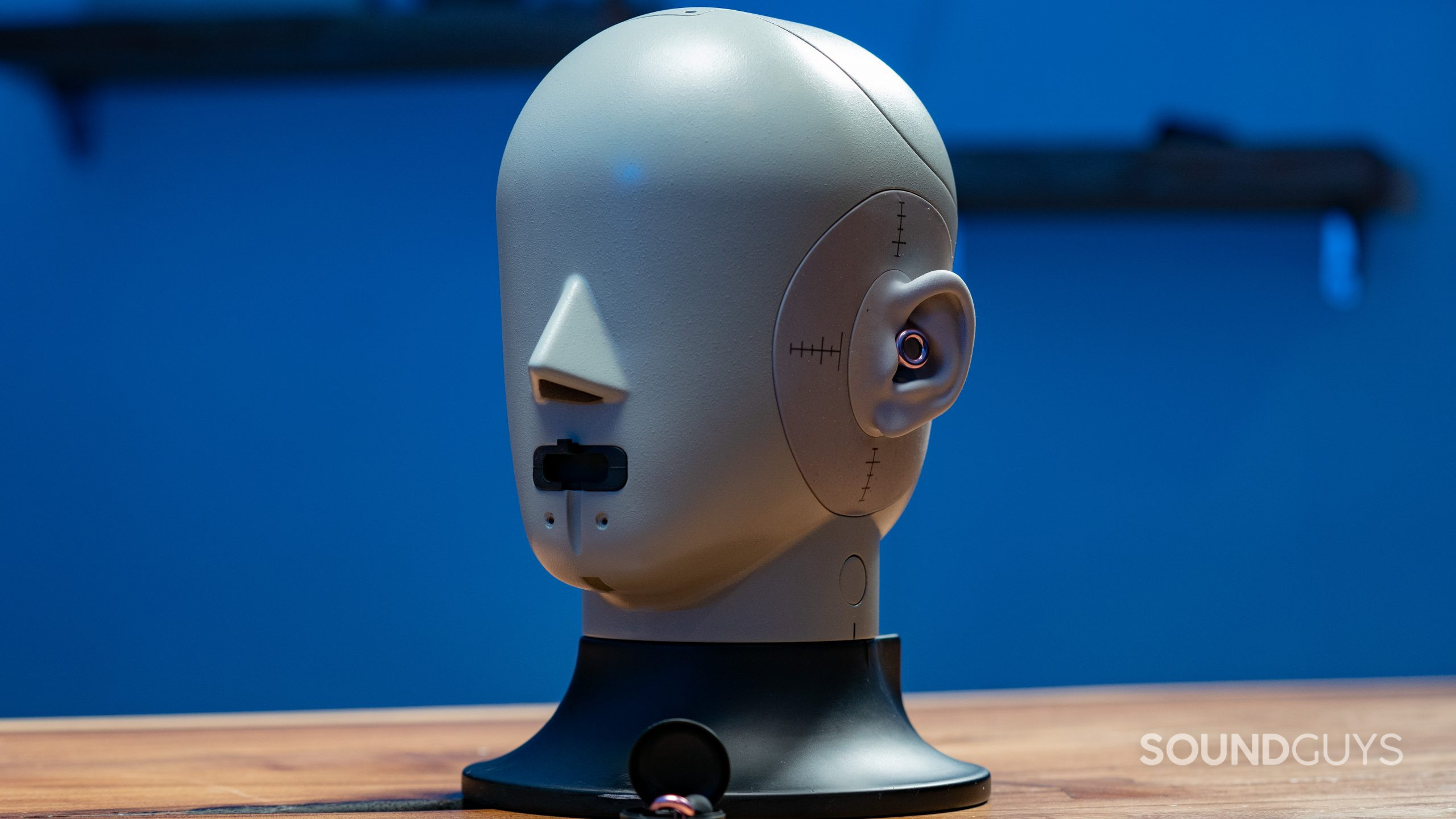
Our testing process for evaluating the effectiveness of transparency mode in earbuds is thorough and multi-faceted. We examine how well the earbuds balance ambient sound with audio playback, ensuring that environmental noises are neither too overpowering nor too subdued. This involves testing in multiple real-world scenarios, such as in busy streets, public transportation, offices, and quiet rooms, to gauge performance across different noise environments.
We also assess the responsiveness of the transparency mode, including how quickly it activates upon detecting speech or environmental changes and how seamlessly it integrates with the listening experience. Another critical aspect of our testing includes evaluating the naturalness of the ambient sound, ensuring it doesn’t sound overly processed or artificial, which can be distracting or uncomfortable over time.
How we choose the best transparency mode earbuds
In selecting the best transparency mode earbuds, we prioritize models that offer a seamless and natural integration of external sounds, allowing users to remain connected to their environment without sacrificing audio quality. Key factors in our evaluation are the ability to customize the level of ambient sound, quick toggling between modes, and the overall sound quality of the earbuds.
Earbuds that provide an intuitive user interface, robust connectivity options, and reliable performance across a range of listening scenarios stand out in our selection process. Our goal is to recommend transparency mode earbuds that excel in their primary function of blending ambient sounds with personal audio and offer a comfortable fit, long battery life, and a user-friendly experience, ensuring they meet the diverse needs and preferences of our readers.
Why you should trust SoundGuys
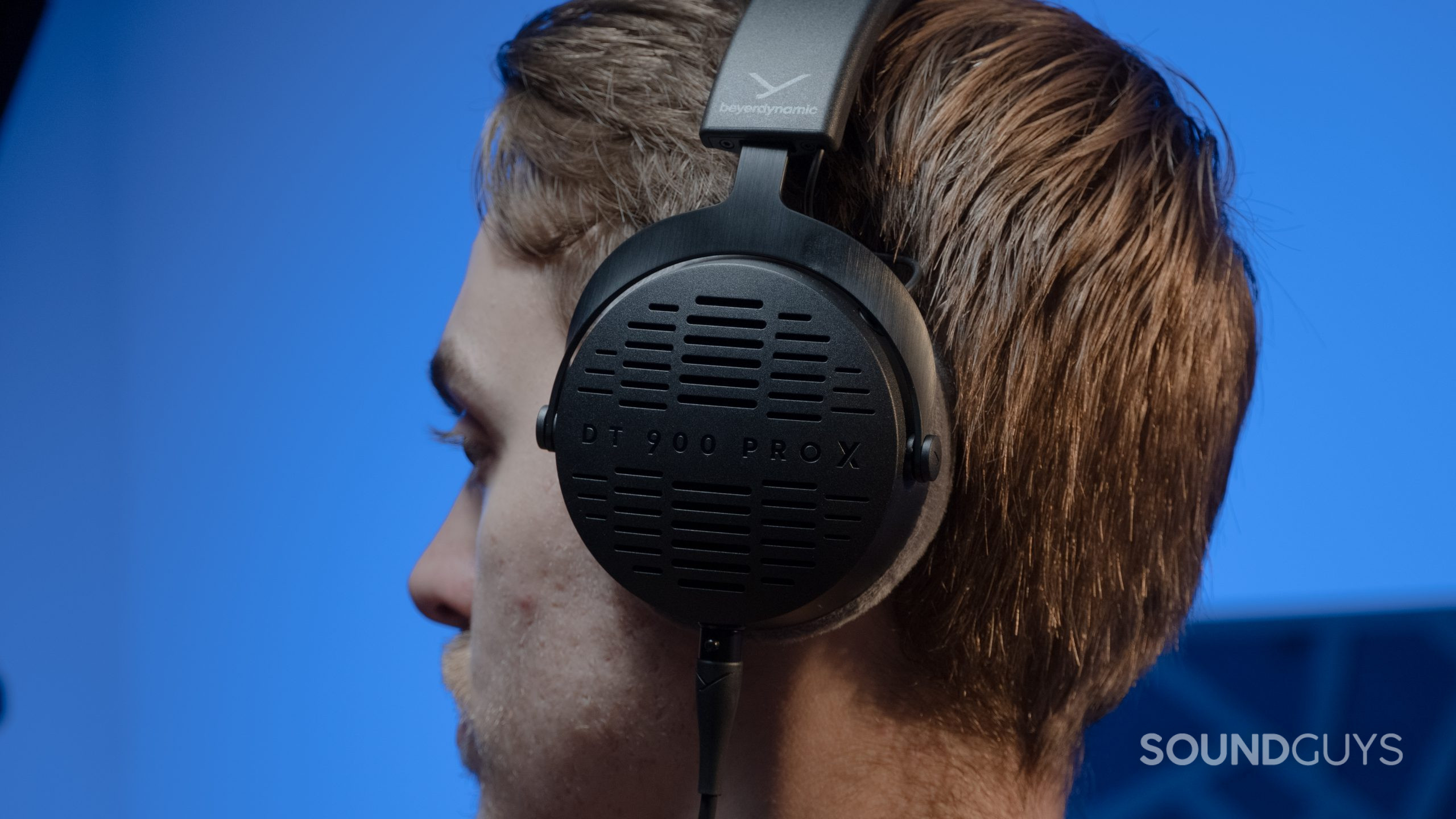
At SoundGuys, our commitment to delivering accurate, unbiased, and thorough reviews is at the core of everything we do. Our team of audio experts brings years of industry experience and a passion for sound to every article, review, and test we conduct. We pride ourselves on our rigorous testing methodology, which is designed to evaluate audio products under a variety of conditions to assess their performance, durability, and overall value. Our process is transparent, and we strive to explain our findings in a way that’s both informative and accessible to all our readers, from casual listeners to audiophiles.
SoundGuys operates with strict ethical standards, ensuring our reviews are free from external influence. Even when products are provided by manufacturers, we maintain full editorial independence. Our recommendations are made based on data and experience, not brand partnerships or sponsorships. Our primary goal is to help our readers make informed decisions about audio products that will best meet their needs and preferences.
Frequently asked questions
Yes, transparency mode is generally good for ears as it allows users to remain aware of their surroundings without increasing volume to unsafe levels. It reduces the need for users to constantly remove and re-insert earbuds, potentially minimizing ear fatigue.
Transparency mode allows external sounds to pass through to the listener’s ears, maintaining awareness of their surroundings. Adaptive transparency, on the other hand, dynamically adjusts how much external sound is allowed based on the loudness of environmental noise.
Adaptive transparency is highly effective for maintaining situational awareness while protecting ears from sudden loud noises. It can be a more comfortable and safer listening experience by automatically adjusting to environmental sounds.
ANC (Active Noise Cancelling) blocks out external noise to provide an isolated listening experience. Transparency mode allows external sounds to pass through, so users can hear their surroundings while listening to audio.
Adaptive transparency mode is available on certain earbud models, like the Apple AirPods Pro (2nd Generation). Accessing this feature typically requires using the accompanying app or device settings to enable it.
If you need to stay aware of your surroundings for safety or convenience while listening to audio—such as when walking in busy streets or working in an office environment—transparency mode can be beneficial.
Transparency mode might sound muffled if the earbuds are not properly seated in your ears, if there’s a build-up of earwax on the earbuds or if there’s an issue with the microphones used to pick up external sound. Checking the fit and cleanliness of your earbuds can often resolve this issue.
Standard transparency mode does not block loud noises; it allows external sounds to pass through. However, adaptive transparency mode, as found in some earbuds, can dynamically lower the volume of sudden loud noises while still letting you remain aware of your surroundings.
Thank you for being part of our community. Read our Comment Policy before posting.